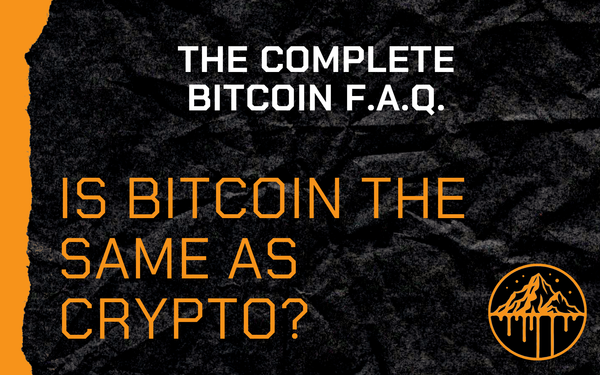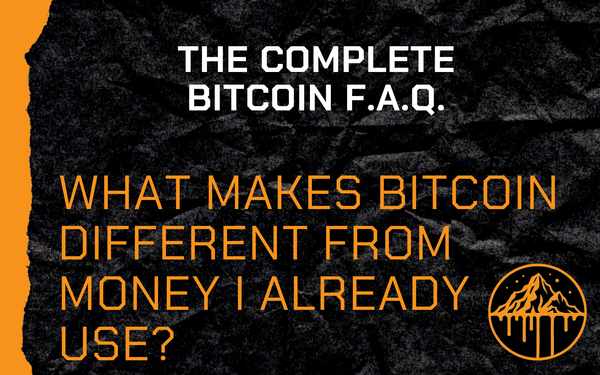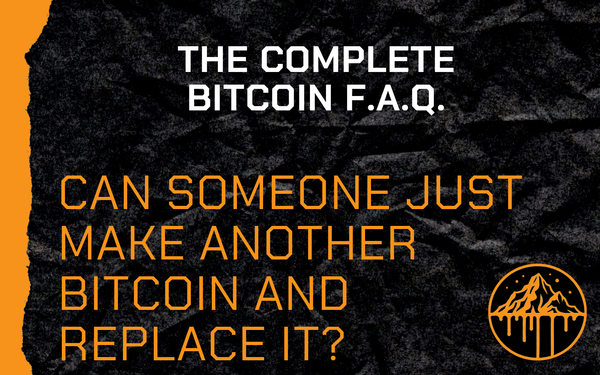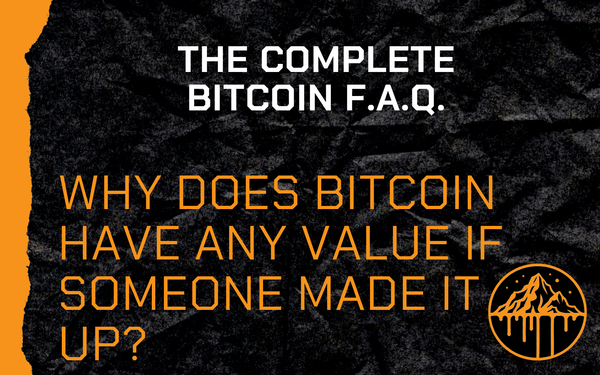Bitcoin in 2025 = The Internet in 1995 (And I’m Not Missing It Again)
Bitcoin today is exactly where the internet was in 1995—and this time, I’m paying attention.
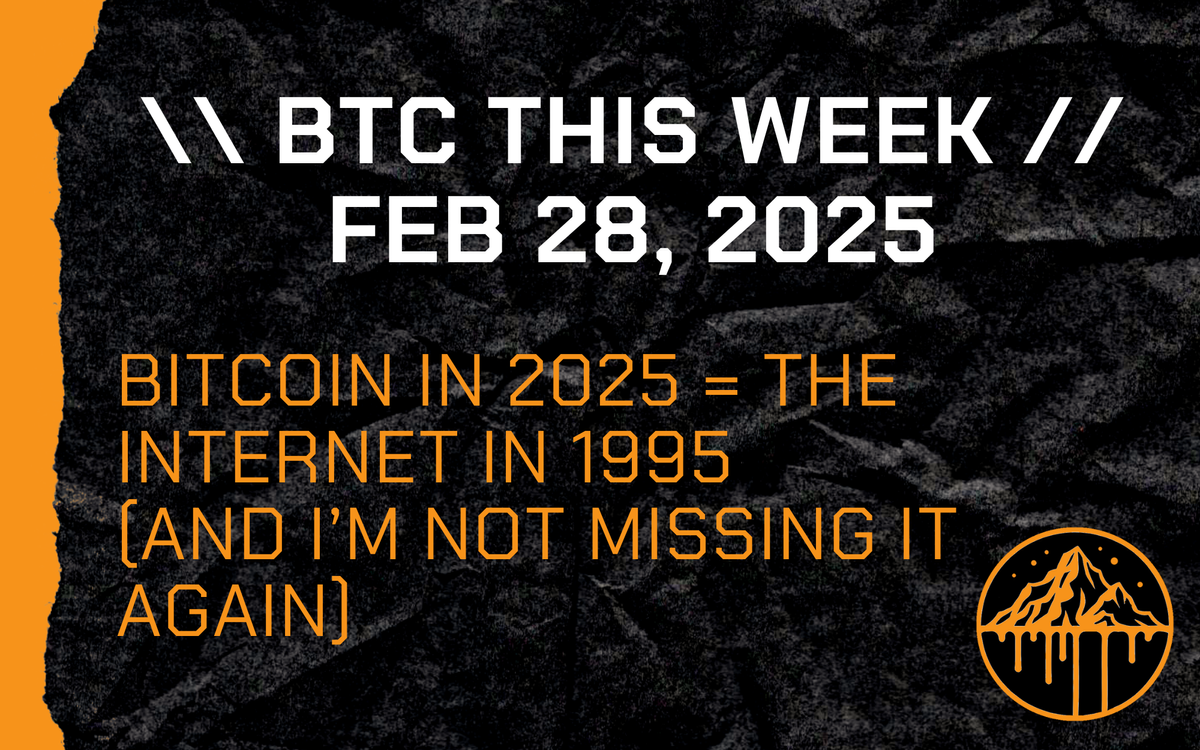
I Saw This Before—And I Missed It
I was obsessed with the internet in the 90s.
In 1995, I was in grad school and we were given an assignment—go home and “chat” over the internet. We had no fucking idea what that meant, but my buddy and I tried it. We would call each other on the phone, talk about how we were going to log into the chatroom, and then try it. When it didn’t work, we’d disconnect from the modem and call each other again. When we finally got into the same chatroom it felt like magic.
The ability to connect with people across the globe, instantly? That was mind-blowing. In high school circa 1984, Mrs. Krieg gave us pen pals from England and France, and we’d write letters back and forth—weeks between replies. Then the internet showed up, and suddenly, you could communicate in real time, across continents, for free.
I knew this was revolutionary. But I didn’t see the financial opportunity.
I wasn’t blind to the power of the internet—I just didn’t realize how big it would be as a wealth-building event. I wasn’t thinking about early tech stocks, e-commerce, or investing in Amazon before it became Amazon™. I thought the internet was cool, but I didn’t see how it could make me rich. I dabbled by purchasing a few stocks with my new E*TRADE account, but I invested in things like Juno.com and Pets.com. Fuck.
I won’t make that mistake again.
Bitcoin today is exactly where the internet was in 1995—and this time, I’m paying attention.
Bitcoin in 2025 = The Internet in 1995
The River Bitcoin Adoption Report confirms what Bitcoiners already know:
Bitcoin is a grassroots movement.
- The overwhelming majority of Bitcoin owners are individuals—not institutions, not governments, not hedge funds.
- Just like the internet in 1995, Bitcoin is still mostly owned and built by regular people, not the establishment.
- Wall Street and governments are trying to get a foothold, but they don’t control it yet.
This is exactly how the internet started.
1995: “The internet is just for nerds.”
2025: “Bitcoin is just for nerds.”
1995: “It’s too hard to use. Normal people will never adopt this.”
2025: “Self-custody is too complicated. Normal people won’t bother.”
1995: “The government will regulate it out of existence.”
2025: “Governments will ban Bitcoin.”
Do you see the pattern?
Every world-changing technology follows the same adoption curve. First, the nerds see the potential. Then, the critics laugh. Then, it eats the world.
We’re at the 1995 moment for Bitcoin.
The Usability Myth (Again)
- 1995: “The internet is too complicated for normal people.”
- 1995: “Nobody’s going to shop online.”
- 1995: “Nobody needs email.”
Fast forward 30 years, and people have mental breakdowns when the Wi-Fi goes out for ten minutes.
Bitcoin is going through the exact same usability cycle:
- 2025: “Bitcoin wallets are too hard.”
- 2025: “Self-custody is scary.”
- 2025: “It’s too volatile.”
Guess what? Early internet users had to manually configure dial-up modems and memorize IP addresses. I didn’t even have a Go Daddy problem yet. Now? We swipe, tap, and don’t even think about the tech behind it.
The same thing will happen with Bitcoin. Today’s friction will become invisible. Early adopters deal with the pain, late adopters reap the benefits.
Network Effects: Where Are We in the Adoption Curve?
In 1995, only 40 million people used the internet. That was less than 1% of the world’s population.
Today, Bitcoin has over 400 million users—yet people still say it’s “too early.”
They said the same thing about the internet.
But here’s the truth about adoption curves: By the time the masses realize something is inevitable, the biggest gains are already gone.
Early internet adopters built Google, Amazon, and Facebook. The latecomers just became consumers.
Early Bitcoin adopters are taking sovereignty over their wealth. The latecomers will just use whatever Wall Street gives them. Yeah, I’ve got some IBIT but Bitcoin ETFs are NOT Bitcoin.
The Dot-Com Bubble vs. Shitcoin Carnage
Every major tech shift goes through a hype cycle, a crash, and a consolidation phase:
- 1999: Dot-com bubble bursts. 90% of internet stocks go to zero.
- 2022: Crypto bubble bursts. 90% of altcoins go to zero.
But the real builders survived.
Amazon, Google, and PayPal came out of the ashes of the dot-com collapse. The same is happening in Bitcoin right now. The scams, meme coins, and frauds are dying, but Bitcoin? Bitcoin is stronger than ever.
Final Thought: The Window Is Closing
In 1995, the internet was inevitable—but people still ignored it.
In 2025, Bitcoin is inevitable—but people still ignore it.
I won’t.
I missed the early days of the internet because I didn’t realize what I was looking at. This time, I see it clearly.
Bitcoin is the next great wealth shift. The question is: Are you paying attention?
Wealth melts. How much you got left?
Disclaimer: Melting Wealth is not financial advice. It’s a wake-up call. Think for yourself, question the system, and take responsibility for your decisions. Your money, your risk, your move.


